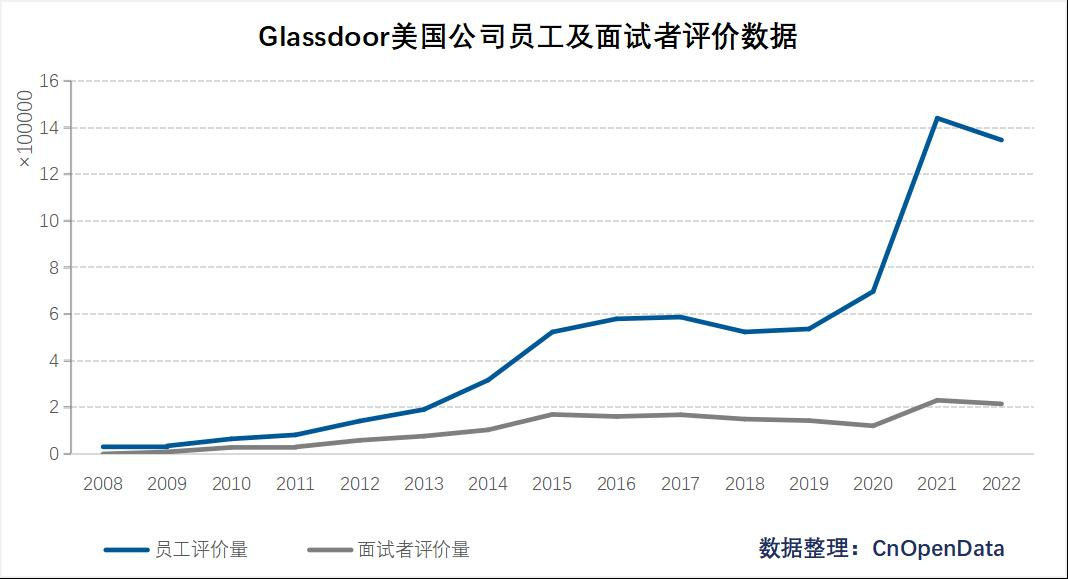Beyond external stakeholders such as shareholders, creditors, and governments, employees' interests should be appropriately safeguarded by companies, as employees constitute the genuine value creators within organizations. Enhancing corporate competitiveness in product markets fundamentally requires improving employee satisfaction - only through higher job satisfaction and well-being can employees maintain stronger work motivation.
The employee evaluation system originated from major internet companies, initially designed to help job seekers quickly understand corporate efforts in protecting employee interests when selecting employers. Furthermore, employers' reviews of their companies provide valuable references for public stakeholders including industry practitioners, media, and regulatory agencies to assess corporate performance.
The Glassdoor employee and interviewee evaluation data for U.S. companies released by CnOpenData comprises two distinct datasets: employee evaluations and interviewee evaluations. These datasets encompass multiple dimensions including satisfaction ratings (job, company, environment), compensation and benefits(薪酬福利), cultural values(文化价值观), corporate outlook(企业展望), and recommendation willingness(是否推荐).
Temporal Coverage
Employee evaluation dataset: 2008-2022.12.31
Interviewee evaluation dataset: 2009-2022.12.31
Data Volume

Field Demonstration
Sample Data
U.S. Company Employee Evaluation Table
U.S. Company Interviewee Evaluation Table
Relevant Literature
- Cao Y, S. Cheng, J. W. Tucker and C. Wan, 2023, "Technological peer pressure and skill specificity of job postings", Contemporary Accounting Research, forthcoming.
- Kelly Huang, Meng Li and Stanimir Markov, 2020, "What Do Employees Know? Evidence from a Social Media Platform", The Accounting Review.
- Dehaan E., N. Li and F. S. Zhou, 2023, “Financial reporting and employee job search”, Journal of Accounting Research, 61(2): 571-617.
Data Update Frequency
Annual updates